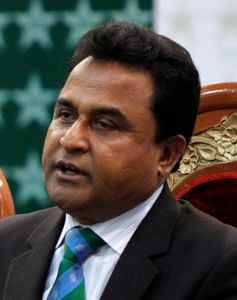A chartered accountant-turned-textile baron, Mustafa Kamal was president of the International Cricket Council (ICC) from July 2014 to April 2015. He was minister of planning in the Sheikh Hasina government for five years, before he was made finance minister in 2019.
Kamal spoke to THE WEEK about Bangladesh’s battle with Covid-19. He said Prime Minister Hasina has taken full control by constituting a high-powered team to lessen the impact of the pandemic on the economy. Excerpts from the exclusive interview:
Q/Bangladesh has been in lockdown for a month. What would be the economic implication?
A/It is very difficult to ascertain that now. It will take time to assess the damage caused by the lockdown and the disease.
Q/Economies all over the world are assessing the impact now.
A/Every country is suffering; Bangladesh cannot be an exception. It is true that we, too, will see downward trends after a couple of months. But to what extent, we will be unable to tell you (now).
Q/You went for the lockdown without assessing the situation?
A/A high-level committee headed by the prime minister is in place. The HLC decided when to implement the lockdown; it will decide when to withdraw it.
Q/What about the support to different sectors of economy in this critical time?
A/That is also being decided by the HLC. Incentives are being given based on the demands of different sectors.
Q/Why is it left to the HLC and not the finance ministry?
A/The HLC headed by the prime minister has experts who are globally renowned and highly competent. The finance ministry is reporting to the prime minister as and when required.
As an export-oriented economy, Bangladesh will have to rely on other nations.
Yes, our service sector makes up 55 per cent of our economy. So our economy is mostly export-oriented. Each and every factory is being assessed and a stimulus package is being worked on.
Q/What has the government done so far?
A/The government would release sops for affected sectors. The prime minister is closely monitoring it through the HLC. She has completely taken charge. A stimulus package of $12 billion, which is 3.3 per cent of our GDP, has already been sanctioned.
Q/What is the role of your central bank?
A/The central bank is working on multiple packages. Apart from infusing liquidity, it is also adopting a policy to help micro and small industries get loans at subsidised rates.
Q/Bangladesh had been witnessing double-digit GDP growth. It looks like history now.
A/We need to save people first. If people are there, then the growth story could be redesigned and rewritten. Our main target today is to save lives.
Q/But would not the present global situation hit Bangladesh hard?
A/Our domestic economy is very strong. We are among the top producers—I think seventh or eighth—in rice, fish and agro-products. So we have enough to feed our people.
Q/How will you produce food without labour?
A/You will be surprised to know that we have turned to agro-based industries. We have undertaken automation in production. Within a year, nothing would be manual.
Q/Where will the labourers go then?
A/Once the pandemic is over, we will need a large number of labourers for other kind of jobs. The food processing industry would need a huge number of labourers. Every sector will benefit from this automation process.
Q/How long can you feed the people without any production?
A/For one year, at least. We are completely self-reliant. Our rice, wheat and pulse yields are among the highest in the world. We have revolutionised fisheries and poultry farming. People will not starve today.
Q/For what products are you dependent on foreign countries?
A/Only cooking oil, sugar and onions. We are trying to become self-reliant in these as well. It will take some time. As I said, our main aim now is to control this pandemic and save lives.


